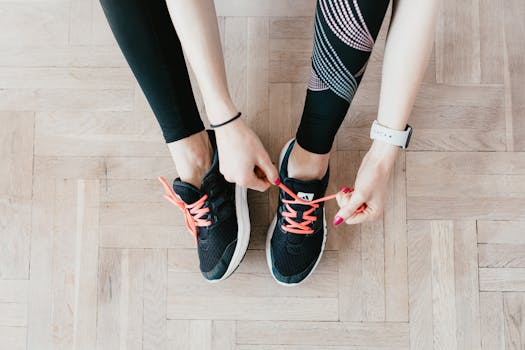Unlocking Happiness: The Mental Health Benefits of Regular Physical Activity
Takeaways: Regular physical activity is crucial for maintaining mental health. It helps reduce anxiety, combats depression, boosts mood, and enhances cognitive function. Incorporating exercise into your daily routine can transform your mental well-being and overall quality of life.
Hey there, friends! Today, I want to chat about something that’s been a game changer for me: regular physical activity and its incredible benefits for mental health. If you’ve ever felt overwhelmed or a bit down, trust me – you’re not alone. We all go through those phases, but I’ve found that getting my body moving makes a world of difference!
Why Exercise Matters
Let’s face it: life can get pretty stressful. Between work deadlines, family obligations, and the endless stream of social media updates, it can feel like we’re drowning in a sea of responsibilities. But here’s the kicker – exercise is like a breath of fresh air in the chaos! When I started exercising regularly, I noticed an immediate lift in my mood. It’s like my brain suddenly had a reset button!
Regular physical activity releases endorphins, the body’s natural mood lifters. These little hormones are your best friends when it comes to fighting off feelings of sadness or anxiety. Personally, I find that even a brisk walk around my neighborhood can turn my day around. It’s amazing how just moving my body can clear my mind!
Combatting Anxiety and Depression
One of the biggest benefits of exercise is its ability to alleviate anxiety and depression. According to numerous studies, physical activity can be as effective as medication for some people! I’ve had my share of anxious days, and I can’t tell you how much a good workout helps. Whether it’s hitting the gym or taking a yoga class, moving my body helps release pent-up tension. Plus, it gives me a sense of accomplishment!
For those of us who struggle with the ups and downs of mental health, finding a form of exercise we enjoy is key. It doesn’t have to be intense – walking, dancing, or even gardening can help. I often put on my favorite playlist and dance around my living room. It’s silly, but it works wonders for my mood!
Improving Sleep Quality
Let’s talk about sleep – or the lack thereof. Many of us know how crucial a good night’s sleep is for mental health. However, stress and anxiety can often keep us tossing and turning. Here’s where exercise plays a vital role! Regular physical activity can improve sleep quality and help you fall asleep faster.
When I started exercising more, I noticed that I fell asleep easier and woke up feeling more refreshed. It’s like my body craved that physical exertion to relax! Just make sure not to exercise too close to bedtime, as that can have the opposite effect. Find a routine that works for you, whether it’s a morning jog or an evening yoga session.
Building Resilience and Self-Esteem
Another fantastic benefit of regular physical activity is how it builds resilience and boosts self-esteem. Every time I hit a new milestone – whether it’s running a little further or lifting heavier weights – I feel a surge of confidence. It’s a reminder that I’m capable of achieving my goals, big or small!
This boost in self-esteem can be life-changing, especially for those of us who struggle with self-image or confidence issues. Plus, being part of a fitness community, whether in-person or online, can provide the support and encouragement we need to keep going. I love sharing my fitness journey with friends, and it’s inspiring to see others do the same!
FAQs
How much exercise do I need for mental health benefits?

What types of exercise are best for mental health?
Any form of physical activity you enjoy can be beneficial. Whether it’s running, swimming, dancing, or yoga, the key is to find something that makes you feel good!
Can I exercise if I’m feeling really low?
Yes! It might be tough to get started, but even a short walk can help. Start small and gradually increase your activity level as you feel more comfortable.
How quickly can I see results in my mental health?
Many people start to feel better after just one session of exercise, but consistent activity is what leads to lasting improvements. Stick with it, and you’ll likely notice changes in your mood and outlook on life!






